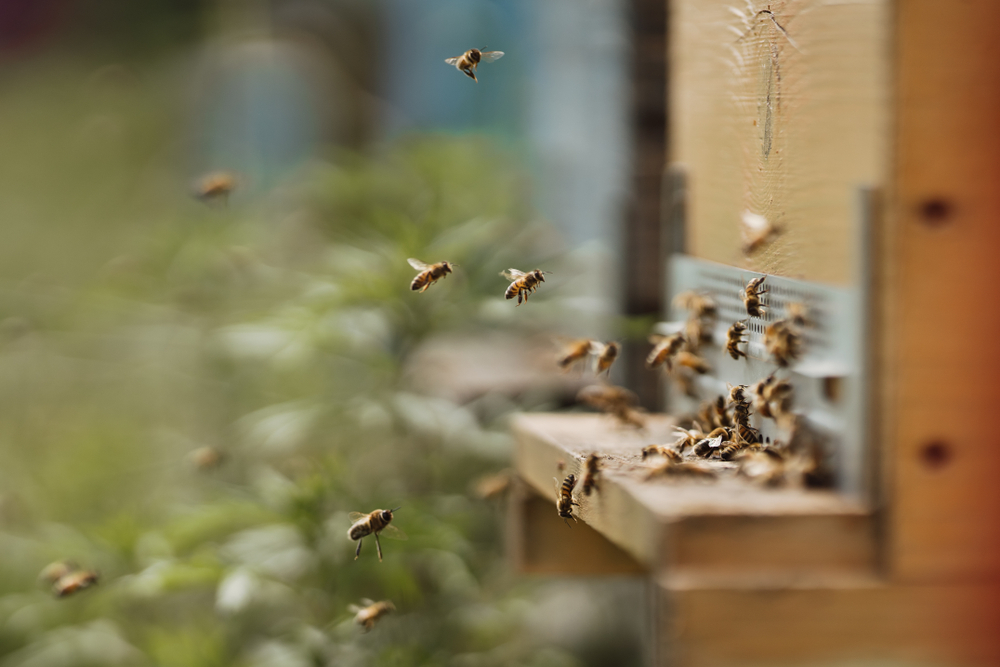Birds, Bees, & Bugs
The week of June 23, 2019 - We explore the solutions helping our environment's most productive and important little creatures.

This unusual greenhouse in France is growing insects instead of vegetables
Though it may look like a normal hothouse that grows vegetables, the Savéol experimental greenhouse in Brittany boasts a very different kind of crop — insects. The goal? To breed plant-friendly invertebrates that can enable farmers to produce pesticide-free tomatoes. From bumblebees to wasps Read More...

Save water in your yard with these drought-resistant plants
With 17 countries around the world facing high water stress and drought, you might be asking yourself, what can we do to help save water? In addition to practicing water smart behavior in the home like saving wastewater and repairing leaky faucets, changing the way you look at the outside of your Read More...

Meet Mia: The world’s first “bionic bird”
Mia is a female bearded vulture, the largest type of flying bird in Europe — but that’s not the most impressive thing about her. She is the first bird to receive a permanent prosthetic foot, and is described as the world’s first “bionic bird.” Mia was brought into the Owl and Bird Prey Read More...

New "bee vaccine" can help pollinators become immune to pesticides
Without pollinators, our food security and survival as a species would be seriously at risk. But even with this knowledge, humans continue to perpetuate practices that endanger bees and other pollinators, one of the biggest being the growing use of pesticides in agriculture. Pesticides in large Read More...

Citizen scientists step up to track cicada rising
Citizen science has been booming during the pandemic as curious adventurers seek out new ways to get involved in their local natural environment. As billions of cicadas rise up after their 17-year slumber, teams of citizen scientists are taking on the task of mapping their path and prevalence Read More...

Monarch conservation coalition launches huge milkweed planting initiative
Although monarch butterfly populations showed signs of recovery in recent years, these orange beauties are still highly threatened. The species’ numbers have fallen 99 percent since the 1980s, but a new collaboration between conservation groups, the California Department of Fish and Wildlife, and Read More...

EU court upholds pesticide ban to protect European bees
Back in 2020, we shared how the European Union’s top court upheld a French pesticide ban to protect bees. Now the court is back with another pro-pollinator ruling, upholding an EU partial ban on three insecticides linked to harming bees. The lawsuit, filed by Bayer, attempted to overturn the Read More...

Automated beehive monitors bee health to prevent colony collapse
Here at The Optimist Daily, we're major advocates for solutions aimed at tackling the collapse of the global bee population. Today, we bring you a solution that may offer a snapshot of what beekeeping of the future will look like, tapping into AI and machine learning to keep the pollinators Read More...

Plantlife launches No Mow May campaign to support pollinators in the UK
Conservation charity Plantlife is urging gardeners in the UK to “do nothing for nature” this month as part of their No Mow May campaign. This campaign is designed to let wildflowers grow unrestrained in people’s yards, to provide more food for pollinators. Plantlife has even approached Read More...

One of Britain’s rarest butterfly species bounces back from near extinction
Ten years ago, a butterfly called the Duke of Burgundy was listed as Britain’s rarest, with the species hurtling towards extinction. Thanks to wildlife-friendly farms, however, the population of the small butterfly has now bounced back, with the number surging by 25 percent over the last Read More...


